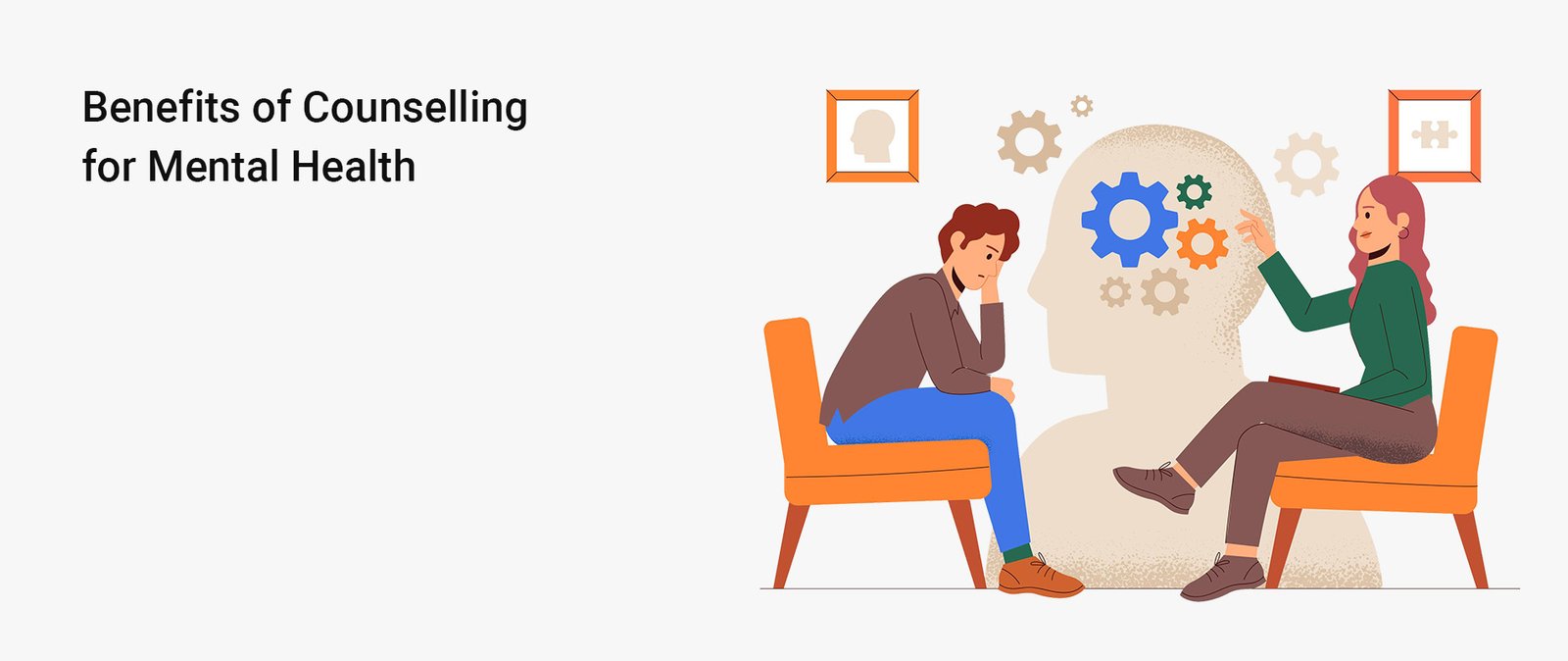9 Easy Facts About Mental Health Counseling Explained
9 Easy Facts About Mental Health Counseling Explained
Blog Article
Some Known Factual Statements About Mental Health Counseling
Table of ContentsThe Ultimate Guide To Mental Health CounselingThe Facts About Mental Health Counseling UncoveredExamine This Report on Mental Health CounselingFacts About Mental Health Counseling UncoveredThe 6-Second Trick For Mental Health Counseling
Via treatment, you can get insight right into your own patterns of behavior and interaction, which can bring about more satisfying and pleasing relationships with good friends, household, and charming partners. What we assume, we materialize. If you're consumed with adverse emotions and adverse thoughts that are hindering your life, therapy can assist., or there are other negative means you act. Treatment can help you change those habits that are having a negative influence on your globe and connections.

The value of therapy surpasses your mental wellness. Obtaining therapy to resolve specific facets of your life can help you be much more efficient in various other locations, consisting of job. Some research has actually also revealed that there's a direct connection in between looking for mental health and wellness help and a decrease in missed job.

The smart Trick of Mental Health Counseling That Nobody is Discussing
You can see a therapist when points are going actually well in your life, or when you will undergo a large life transition." Talkspace therapist Kate Rosenblatt, MA, LPC, LMHC. There are also a lot more advantages of treatment than simply the ones we have actually reviewed. Treatment can educate you how to handle separation, take care of pain, or construct partnerships (enchanting or those with friend or family) in a healthy way.
For the objective of today research study, viewed advantages and obstacles to mental health help-seeking are being explored. Previous research study discovered that regarded barriers have a significant result on university trainees' health behavior options (Von Ah, Ebert, Ngamvitroj, Park & Kang, 2003). Regarded advantages and obstacles to help-seeking were especially picked as a result of their impact on decision-making and eventually action (Glanz, Rimer, & Su, 2005).
The existing research study seeks to examine whether or not stigma offers as an obstacle to treatment amongst college trainees. Among these were: (1) favoring to deal with psychological health problems themselves, (2) not having sufficient time to take part in therapy, (3) concerns concerning whether psychological wellness treatment is efficient in remediating issues, (4) an idea that stress is normal or the problem will get far better without treatment, (5) lack of money, and (6) fret regarding what others would certainly think if they found out regarding therapy engagement.
(2006) reported similar variables as barriers to seeking treatment and likewise discovered that a mistrust of carriers might restrain students from seeking aid. Team in university psychological wellness facilities might be viewed as hostile, and long wait times for solutions might be "off-putting" for trainees. Aspects promoting a lot more positive attitudes are frequently at the opposite post of those variables recognized as obstacles.
An Unbiased View of Mental Health Counseling
One in three (34.6%) reported view living on campus and one in 4 (23.3%) reported living with parents. Almost fifty percent of trainees were involved in university organizations and 1 in 10 reported being in a fraternity or sorority. Even more than one-third of trainees (38.1%) reported that they had a family participant or buddy with a detected psychological health and wellness condition.

Mental Health Counseling Can Be Fun For Anyone
Univariate F-tests recognized particular anonymous subscale products that dramatically differed. Women were much less likely than men to regard people that most likely to counseling as psychologically weak, people that go to counseling as insane, to feel that people with psychological health problems must take care of problems by themselves, that individuals who go to therapy as not able to resolve issues, that people who go to counseling slouch, and to really feel that people who go to therapy are different from normal people in a negative method.
Research results disclosed that ladies were significantly much less likely than males to hold stigma-related attitudes. This is constant with previous research which likewise located that males hold greater levels of regarded preconception than women (Chandra & Minkovitz, 2006). Based upon research searchings for, it is apparent that males may be less most likely than females to look for therapy because of reduced viewed barriers along with high stigma-related attitudes.
The Buzz on Mental Health Counseling
In enhancement, university health and wellness specialists might use instructional programs targeting males with details on the benefits of mental health therapy and the value of seeking help when required., the existing study located no considerable distinctions in the number of regarded obstacles to help-seeking actions based on sex.
Researchers speculate that this is primarily due to traditional social standards and gender functions that defined men based on toughness and lack of psychological expression (Addis & Mahalik, 2003; Ang, Lim, Tan, & Yau, 2004; Mojtabai, 2007). Generally, there have been combined results amongst the college pupil population regarding sex distinctions (Rosenthal & Wilson, 2008). This finding was unanticipated and might highlight that those who had obtained therapy had a better idea of delay times and other "accessibility" barriers that might make it difficult to start therapy. Maybe, participants that have actually gotten therapy view a lot more obstacles than participants that have not gotten therapy since view publisher site looking for therapy services once again can involve anxiety of self-disclosing personal information to a brand-new counselor.
Report this page